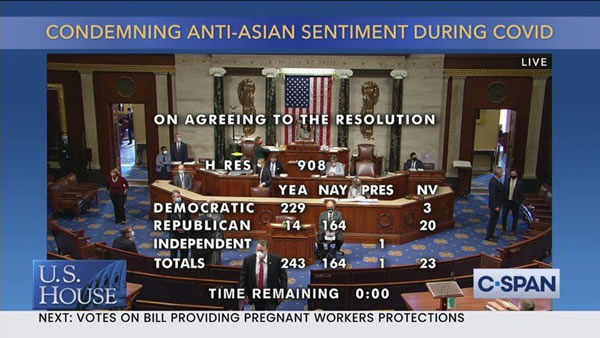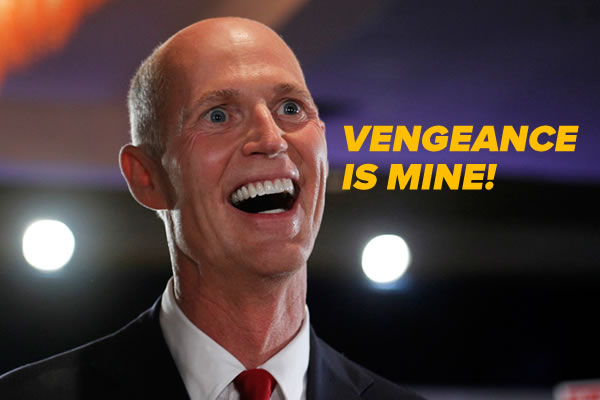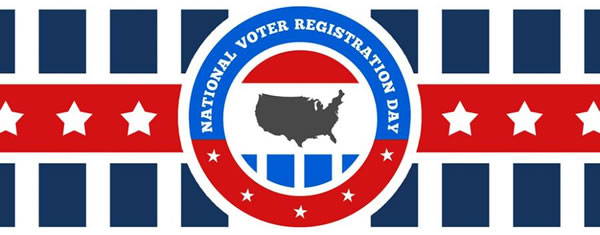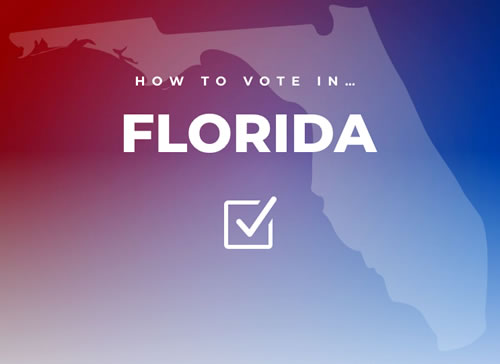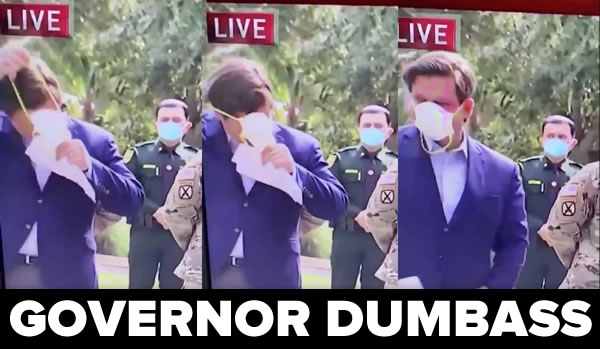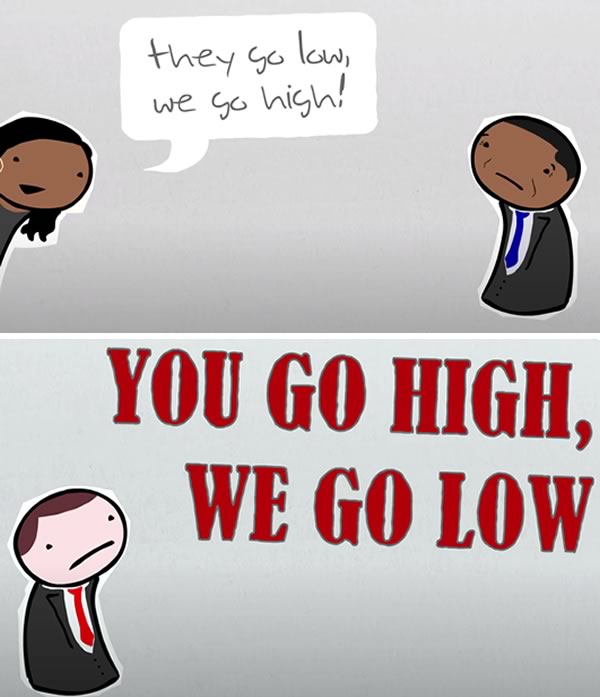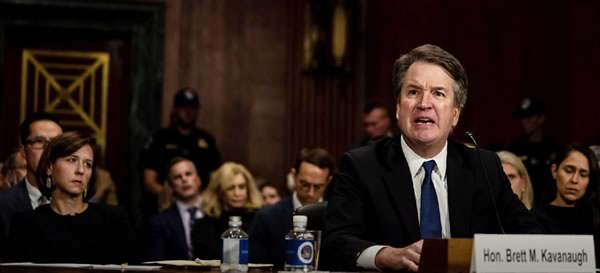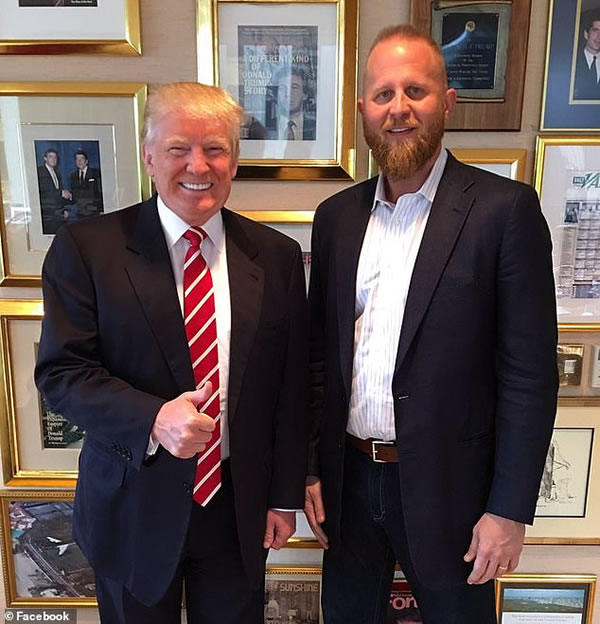
Yesterday afternoon, former Trump campaign manager Brad Parscale was “Baker Acted”. That’s a term that I’d never heard of before moving to Florida, and it refers to the Baker Act, the colloquial name for the Florida Mental Health Act of 1971. It’s for involuntarily institutionalizing a person who may have a mental illness and is posing a threat to themself or others.
The Fort Lauderdale Police Department said in a statement to Business Insider that officers responded to Parscale’s home shortly before 4 p.m. local time after his wife called the police.
Parscale, who was the only person inside the home at the time, “had access to multiple firearms inside the residence and was threatening to harm himself,” according to the statement.
“Officers made contact with the male, developed a rapport, and safely negotiated for him to exit the home,” the department said in the statement. “The male was detained without injury and transported to Broward Health Medical Center for a Baker Act.”

If you watched the Netflix dramatized documentary The Social Dilemma, you might be wondering who the advertisers who helped turned Facebook into a cesspool are. Parscale is chief among them, as he’s credited as the one who came up with the 2016 campaign’s Facebook strategy.
“I was the digital-media director,” he said at California Republican Party’s fall convention in 2019. “So, yes, all that crazy Facebook stuff was my idea.”
“We have turned the R.N.C. into one of the largest data-gathering operations in United States history.”
For more, see The New Yorker’s March 2020 article, The Man Behind Trump’s Facebook Juggernaut.
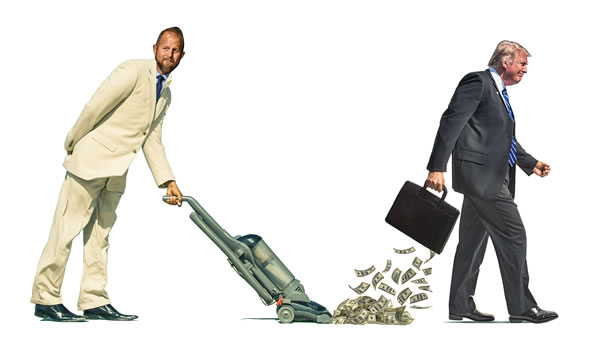
Prior to meeting the Trumps, Parscale ran a modestly successful web marketing company. It was a chance encounter on a flight that changed his destiny:
One of Parscale’s customers sat on a flight next to a passenger who would soon join the Trump Organization. Parscale’s work came up, and eventually he got an email from the seatmate asking whether he wanted to bid on developing a website for Trump’s company.
Parscale, a regular viewer of Trump’s reality show, “The Apprentice,” jumped at the chance.
“I just made up a price,” said Parscale, offering to do it for $10,000. He told Trump’s son Eric that the money was refundable if the work was unsatisfactory. “I recognized that I was a nobody in San Antonio, but working for the Trumps would be everything.”
Eric Trump became Parscale’s biggest supporter. “He wowed me,” Eric Trump said in an interview. “I found myself going to Brad over and over again.”
Over the next five years, the Trump Organization sent hundreds of thousands of dollars worth of website-related work to Parscale.
In mid-2015, Parscale got a call from Jared Kushner asking how he would run the Trump campaign’s digital strategy:
“If he wants to be the next president, he has got to harness Facebook,” Parscale said he told Kushner. “Give me the power, and I can help you win.”
Since that time, Parscale’s companies — and yes, that plural companies — have been raking in millions from the Trump campaign, and he’s done well as a result.
As much as I hate to link to the Daily Mail (also known as “The Daily Heil”), there’s no better explainer of Parscale’s change in fortunes has been spending his money that their fawning, bootlicking article from August 2019 titled How Donald Trump’s campaign manager Brad Parscale went from family bankruptcy to splashing out millions on mansions, condos and luxury cars through his companies that get a hefty cut of the president’s $57M campaign contributions.

He’s been spending money like a drunken sailor on shore leave, and The Lincoln Project have used it as fodder in one of their anti-Trump campaign ads:
And then the rally at Tulsa happened. Or more accurately, failed to happen.

First, I’ll let these stories do the talking:
- The Guardian, June 21, 2020: Brad Parscale faces Trump ‘fury’ after Tulsa comeback rally flops
- San Antonio Current, June 22, 2020: Trump’s Tulsa Debacle Doesn’t Look Good for Brad Parscale’s Future as Campaign Chief
- CNN, June 21, 2020: Jared Kushner and Ivanka Trump ‘pissed’ at Trump campaign manager over his rally crowd size predictions, source says
- And here’s the story with my favorite title, from Vanity Fair, June 22, 2020: “Brad Really S–t The Bed Saturday Night”: After Tulsa Catastrophe, Parscale—And Kushner—Is At The Top Of Trump’s Hit List
Then, I’ll let these stories do the talking:
- USA Today, July 15, 2020: Longtime Trump aide Brad Parscale removed as campaign manager as president shakes up reelection staff
- New York Times, July 15, 2020: Trump Replaces Brad Parscale as Campaign Manager, Elevating Bill Stepien
- CNBC, July 15, 2020: Trump shakes up campaign staff, demotes top manager Brad Parscale as polls show him behind Biden
- Politico, July 16, 2020: ‘He’s not demoted’: Trump spokesman spins campaign manager’s removal
- Business Insider, July 17, 2020: EXCLUSIVE: The Trump campaign is investigating campaign spending, Parscale contracts

Last night’s incident is probably the result of the convergence of a number of things:
- His demotion after Tulsa,
- a legal complaint filed by the Campaign Legal Center that alleges that the Trump Campaign, under Parscale’s watch, did not properly report nearly $170 million in campaign spending done through firms that paid subcontractors, and
- he’s probably leveraged to the hilt, just from his real estate spending alone (over $4 million — he’s been trying to rent out the condos for some time), never mind the cars and other accoutrements of the Fort Lauderdale nouveau riche lifestyle.
Yesterday’s New York Times exposé of Trump’s tax records and debt may also have been a factor.
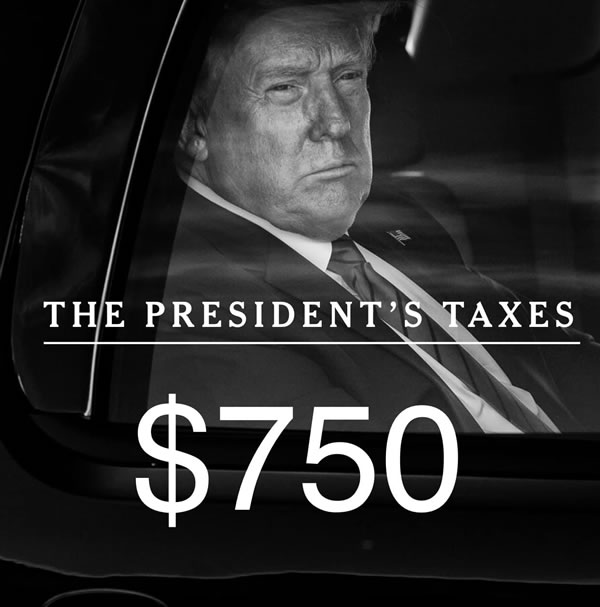 Yesterday’s article, Long-Concealed Records Show Trump’s Chronic Losses And Years Of Tax Avoidance, got a lot of people talking about how little tax Trump has paid over the past couple of decades.
Yesterday’s article, Long-Concealed Records Show Trump’s Chronic Losses And Years Of Tax Avoidance, got a lot of people talking about how little tax Trump has paid over the past couple of decades.
While the tax issue is irksome, what concerns me more is Trump’s debt. A key part of his campaign was that he was a successful businessman, and as a rich person, he couldn’t be bought.
Trump is personally responsible for over $300 million in loans which are due for payment over the next four years, and his sources of revenue are in the hospitality industry, which has taken a big hit due to the pandemic.

What we have are two men with similar back-stories…
…Parscale’s accounts of his life and his work for the president comprise a classic Trumpian tale: They’re a combination of hyperbole, half-truths and the occasional fiction. Indeed, Parscale shares more than one trait with his most important client. He has embraced political beliefs not in evidence before the 2016 campaign. Like Trump, he has adapted to opportunities as they arose. And like Trump, Parscale is largely unencumbered by the concerns for consistency and accuracy that are the hobgoblins of smaller minds.
…who find themselves in similar situations:
- Facing a reversal of fortunes,
- under investigation, and
- deeply in debt (Trump’s debt is certain, Parscale’s is probable, given that just a decade ago, he was doing low-ball bids on website work).
Faced with this crisis, Parscale had a meltdown. What happens when the President* has to reckon with a similar situation?

